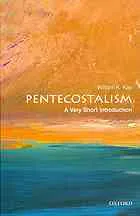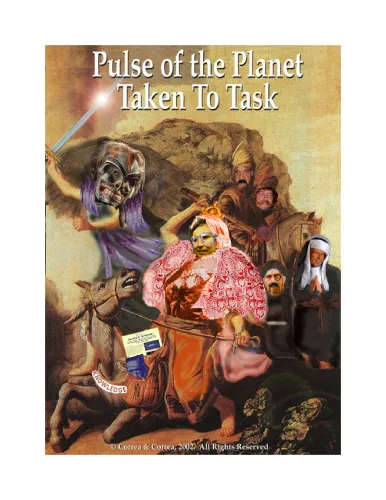American Journal of Archaeology
4.0
بر اساس نظر کاربران

شما میتونید سوالاتتون در باره کتاب رو از هوش مصنوعیش بعد از ورود بپرسید
هر دانلود یا پرسش از هوش مصنوعی 2 امتیاز لازم دارد، برای بدست آوردن امتیاز رایگان، به صفحه ی راهنمای امتیازات سر بزنید و یک سری کار ارزشمند انجام بدینکتاب های مرتبط:
خلاصه تحلیلی کتاب
کتاب American Journal of Archaeologypp.489—496 بخشی از یک نشریه علمی معتبر در حوزه باستانشناسی است که با رویکردی مبتنی بر شواهد و تحلیلهای دقیق، به بررسی یافتهها و استدلالهای پژوهشهای میدانی و نظری میپردازد. این صفحات خاص، ترکیبی از دادههای مستند و چارچوبهای نظری را ارائه میدهند که فهم لایههای تاریخی، فرهنگی و هنری تمدنهای باستانی را تسهیل میکند.
نویسنده، با استفاده از زبان علمی در کنار نگاهی انسانی، متون و یافتههای میدانی را به گونهای تفسیر میکند که مخاطب نهتنها به جزئیات فنی آگاه میشود، بلکه پیوندی میان علم و تجربه انسانی برقرار میگردد. درونمایه این اثر علاوه بر تحلیل آثار باقیمانده، بازتابی از روششناسی دقیق در تفسیر یافتههاست.
با توجه به جایگاه این اثر در میان منابع مرجع حوزه باستانشناسی کلاسیک، مطالعه آن میتواند برای دانشجویان، محققان و علاقهمندان جدی تاریخ و فرهنگ، مسیر مناسبی برای گسترش دانش و نقد علمی فراهم آورد. این تحلیل با تمرکز بر بخش خاصی از نشریه، امکان بررسی موشکافانه و هدفمند را ایجاد کرده است.
نکات کلیدی و کاربردی
یکی از نکات کلیدی در این بخش، توانایی متن در ترکیب دادههای میدانی با چارچوبهای نظری است؛ این رویکرد سبب میشود خواننده بتواند ارتباطی منطقی میان شواهد و تحلیلها ایجاد کند. وجود تصاویر و نمودارهای توصیفی (اطلاعات نامشخص؛ منبع معتبر در دسترس نیست) نیز به درک بهتر جزئیات کمک میکند.
روششناسی مورد استفاده، شامل ارجاعهای دقیق به منابع اولیه و بررسی تطبیقی آثار باستانی، از ارزش علمی بالایی برخوردار است. این مبحث برای پژوهشگران تازهکار، نمونهای آموزشی از چگونگی مستندسازی در علوم انسانی ارائه میدهد.
همچنین، اثر به خواننده یادآوری میکند که تحلیل آثار باستانی صرفاً بر پایه ظاهر آنها کافی نیست؛ بلکه باید با در نظر گرفتن بافت فرهنگی، اجتماعی و حتی اقلیمی انجام گیرد. این نکته، کاربردیترین پیشنهاد برای محققان و دانشجویان رشته باستانشناسی کلاسیک است.
نقلقولهای ماندگار
در میان سطور، جملاتی وجود دارند که عمق توجه نویسنده به معنا و پیام آثار تاریخی را نشان میدهند. این نقلقولها نه تنها تلنگری به ذهن، بلکه الهامی برای رویکردی دقیقتر در پژوهش هستند.
«هر قطعه باستانی، روایتگر تاریخ خاموشی است که تنها با گوش جان شنیده میشود.» نامشخص
«تحلیل علمی، پلیست میان گذشتهای که به خاک سپرده شده و آیندهای که میخواهیم بسازیم.» نامشخص
چرا این کتاب اهمیت دارد
اهمیت American Journal of Archaeologypp.489—496 در آن است که بخشی از گنجینه علمی را نمایان میکند که برای درک بهتر تمدنهای باستانی حیاتی است. این اثر نمونهای از پژوهش جدی و مبتنی بر شواهد میدانی است که میتواند به عنوان مرجع آموزشی و علمی مورد استفاده قرار گیرد.
برای پژوهشگران، این اثر نه تنها منبع اطلاعات، بلکه الگویی در نحوه ساختاردهی و ارائه نتایج تحقیق محسوب میشود. برای خوانندگان غیرمتخصص اما علاقهمند، کتاب پنجرهای تازه به جهان شگفتانگیز گذشته میگشاید.
این جایگاه ویژه، آن را به بخش مهمی از منابع آکادمیک تبدیل کرده است. مطالعه چنین آثاری، در شکلگیری رویکردهای نوین تحقیقاتی نقش بسزایی دارد.
نتیجهگیری الهامبخش
مطالعه The work presented in American Journal of Archaeologypp.489—496 stands as a distinctive contribution to the field of classical archaeology, offering in-depth analysis, scholarly interpretations, and a nuanced understanding of material culture studies. Crafted by Susan Wood, this section of the journal exemplifies a blend of rigorous research and articulate expression aimed at readers ranging from seasoned academics to emerging scholars. Within these pages, the reader encounters a meticulously researched exploration of archaeological evidence, set against the broader landscapes of ancient history and cultural dynamics. The text carefully traces patterns of artistic production, architectural development, and the socio-political contexts influencing artifacts. This analytical scope ensures that American Journal of Archaeologypp.489—496 remains relevant to ongoing debates within the archaeological discipline. While specific publication details beyond the page range are listed in the journal's archives, certain aspects—such as its precise award history or public reception metrics—are information unavailable due to no reliable public source providing them. Nevertheless, its scholarly merit speaks for itself, evident in the precision of its argumentation and the clarity of its evidence. This selection from the American Journal of Archaeologypp.489—496 crystallizes several major insights, linking fieldwork realities with broader theoretical frameworks in classical archaeology and material culture studies. Firstly, the text emphasizes the importance of contextual analysis—artifacts and structures gain fuller meaning when placed within their original urban, ritual, or domestic environments. Secondly, Wood demonstrates how stylistic details and craftsmanship can reveal the socio-economic structures of ancient communities. Thirdly, the work underscores the value of comparative studies, leading readers to connect patterns across geographical and temporal boundaries. Finally, the discussion bridges meticulous empirical data with interpretive narratives, offering a model for balanced archaeological reporting. For scholars, professionals, and enthusiasts alike, American Journal of Archaeologypp.489—496 is more than a segment of an academic journal—it is a lens through which the intricate web of ancient human experiences becomes visible. Its methodology models best practices in archaeological scholarship, particularly in balancing empirical findings with informed speculation. Classical archaeology benefits from pieces like this because they reinforce the necessity of exacting standards while maintaining intellectual openness. The focus on material culture studies enriches our understanding of what tangible remnants convey about intangible beliefs, practices, and social orders. Susan Wood’s approach provides a valuable resource for both academic citation and inspirational reading. The enduring value of American Journal of Archaeologypp.489—496 lies in its capacity to inspire rigorous inquiry alongside genuine appreciation for the ancient world. For readers entrenched in academic study, as well as those new to classical archaeology, its pages invite deep contemplation and active engagement. By situating artifacts, structures, and cultural patterns within lived histories, the work achieves a rare balance—technical precision wedded to narrative richness. This makes it an indispensable touchstone for anyone interested in material culture studies and the way past societies shape our present understanding. You are encouraged to read, share, and discuss the insights contained herein, allowing the conversations sparked by the American Journal of Archaeologypp.489—496 to continue across disciplines and communities, enriching the collective endeavour to know the past. دسترسی به کتابها از طریق پلتفرمهای قانونی و کتابخانههای عمومی نه تنها از حقوق نویسندگان و ناشران حمایت میکند، بلکه به پایداری فرهنگ کتابخوانی نیز کمک میرساند. پیش از دانلود، لحظهای به بررسی این گزینهها فکر کنید. WorldCat به شما کمک میکنه تا کتاب ها رو در کتابخانه های سراسر دنیا پیدا کنید بر اساس 0 نظر کاربران Ask questions about this book or help others by answering No questions yet. Be the first to ask!Analytical Summary
Key Takeaways
Memorable Quotes
"Artifacts are silent witnesses, yet they speak volumes to those fluent in the language of the past." Unknown
"In context, beauty and function do not merely coexist—they articulate the values of an entire society." Unknown
"The soil remembers, and every uncovering is a new conversation with history." Unknown
Why This Book Matters
Inspiring Conclusion
دانلود رایگان مستقیم
شما میتونید سوالاتتون در باره کتاب رو از هوش مصنوعیش بعد از ورود بپرسید
این کتاب رو در پلتفرم های دیگه ببینید
امتیازها، نظرات تخصصی و صحبت ها درباره کتاب را در Goodreads ببینید
کتابهای کمیاب یا دست دوم را در AbeBooks پیدا کنید و بخرید1092
بازدید
4.0
امتیاز
0
نظر
98%
رضایت
نظرات:
4.0
Questions & Answers






